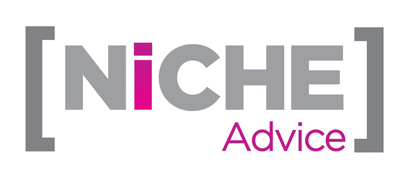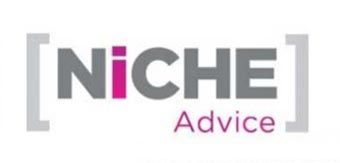GET IN TOUCH
Schedule a call
Self-employed mortgage tips. All the bits other brokers may not know or tell you about.
A Self employed mortgage is different from a Mortgage Lender’s perspective. Self employed income by nature typically fluctuates and this variant conflicts with a mortgage payment that is consistent. Therefore in order to make a judgement the Mortgage Lenders look at annual figures to determine affordability. This longer assessment period allows them to draw a conclusion over a greater period and tease out whether the business is subject to dips at certain times of the year.
At Niche Advice we pride ourselves on taking the time to understand how your business works and offer solutions that can enable you to maximise your mortgage borrowing potential.
Here are some of the types of self employed mortgages we can help arrange:
- Trading periods of 1 year for newly formed businesses.
- Trading periods of 9 months for established businesses that have incorporated.
- Affordability based on Company Profit before tax.
- Decreasing year-on-year trends.
- Affordability based on Latest year’s figures – even if there has been a significant step up.
- Based on an Accountant’s Certificate.
- Mortgages based on the Company’s Year-End date.
- Income multiples are as high as 5.5 to 6 times for the right customers.
- Buy-to-let mortgages based on rental income – even if only over a short period.
- Mortgages with just a 5% deposit.
- Mortgages with up to 4 applicants.
- Mortgages with multiple income streams for example; any combination of limited company income, sole trader, partnership, state benefits, pension and employed earnings.
- On an “employed” basis for minor shareholders.
Here are some common questions on self employed mortgages:
A: Not necessarily. There are some excellent mainstream “high street” options for the self employed.
A: Normally at least 12 months (see below answer).
A: It is extremely unlikely that you can get a first charge mortgage. Exceptions may be considered if one or more of the following apply:
after 9 months where your submitted Tax Calculation already shows the required level of earnings; you have been in the industry for a number of years;
• perhaps incorporated and can show accounts going back when you were a sole trader previously;
• you were employed previously and now you are contracting to the same firm;
• you have a sizeable deposit;
• you are working a professional industry.
Second charge mortgages (secured loans) are more plausible but the business bank statements for the last 6 months must be very healthy and show regular drawings of a level to support both the first and second charge mortgages.
More information on 1-year account Mortgages click here
A: The standard is a 3 year average unless the last year has dipped, in which case they will go by that.
A: There are “high street” Mortgage Lenders that will work off the latest set of accounts or tax returns, however, they are likely to apply an average for the last two years if the year-on-year increase is greater than 25%.
There are also a number of Specialist Lenders that are only available through professional Mortgage Brokes, such as Niche Advice, that allow for large increases year-on-year and take the latest figure. They can to high loan-to-values too but the interest rates will be higher.
A: Net Profit.
To access your HMRC documents please visit https://www.gov.uk/self-assessment-tax-returns
A: Your share of net profit.
A: There is normally a dividing line in when the Mortgage Lender will stop treating applicants as “employees” and instead “self-employed”. The cross over can be as low as 20% shareholding, typically 25% and I’ve seen one as high as 30%.
If seen as employed the last 3 months payslips is the normal basis of assessment. For limited companies normally tax returns and accounts.
A: The standard policy is their share of directors remuneration (salary) and dividends. Also, see Company Profit answer below.
A: There are a growing band of “high street” lenders that will work off this figure plus directors remuneration. The usual basis is Company Profit After Tax (i.e. after the deduction of Corporation tax has been applied), however we can also arrange a mortgage with a “high street” lender that can work on Company Profit Before Tax – which can boosts income by nearly 20% and when applied to the lenders income multiple can make a real positive difference.
A: Both companies will need to meet the lenders minimum trading period in their own right. Some lenders will take 100% of both jobs others 50% to 60% of the second job.
A: You are likely to need 1 year’s accounts for the limited company.
A: Professionals such as Actuaries, Doctors, Dentists, Architects etc may have more mortgage products open to them. The mortgage underwriter is also more likely to accept them as they are skilled, qualified and generally more employable.
A: There are a number of “high street” lenders that offer mortgages on the basis of one contract taking the daily rate. If there is more than one contract they usually default to accounts figures.
A: Not always sometimes they are less.
Niche Advice is a professional Mortgage Broker. If you choose to arrange your self employed mortgage through us we can provide expert guidance on how to obtain the required tax returns from HMRC or indeed work directly with your Accountant to gather the necessary paperwork.
Free, No-Obligation Quote today!
By completing this form you are allowing us to respond to the query by phone, email SMS and our messaging software.




